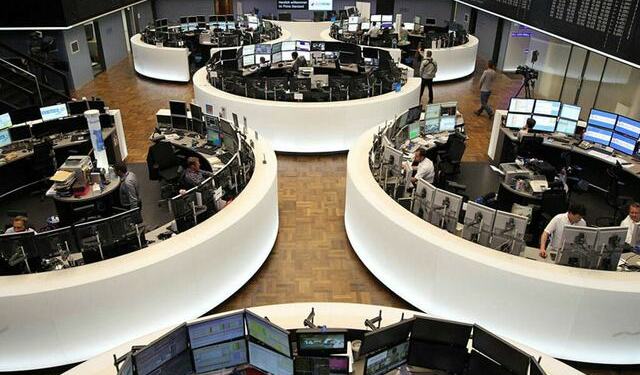BERLIN (Reuters) – Leading German industry groups called on the coalition parties to resolve a row over migrant policy, saying the wrangling threatened to undermine the stability of Europe’s biggest economy.
The three parties were due to meet for crisis talks later on Tuesday, days before a crunch summit of European Union leaders who are themselves badly divided over how to distribute migrants across the bloc and other issues.
Angela Merkel, chancellor for nearly 13 years, is under pressure to deliver a deal at the June 28-29 European leaders’ meeting to keep her conservative Bavarian allies, the Christian Social Union (CSU), on board.
If she fails to come back with at least bilateral deals to ease the burden on Germany, Interior Minister Horst Seehofer, head of the CSU, has said he will defy Merkel and introduce border controls.
This could spell the end of her coalition. Merkel rejects such controls as they would represent a reversal of her own open-doors migrant policy and deal a blow to the EU’s Schengen free border system.
“I am worried that there are an increasing number of differences in the central questions between the coalition parties,” Dieter Kempf, head of the BDI industry association, told the Sueddeutsche daily.
In our uncertain times, the German government should not get so involved with internal divisions, he added.
Tradespeoples’ association president Hans Peter Wollseifer warned of “difficult social and economic consequences that cannot be estimated” if the government were to fall apart.
“Power and party political tactics must not get the upper hand,” he added.
German newspapers homed in on Merkel’s problem. The Sueddeutsche splashed: “Decisive days for the grand coalition” on its front page, and Handelsblatt: “Merkel’s Biggest Battle”.
Even public broadcaster ARD released a highly critical commentary on Merkel’s inability to get a deal within the EU, including the line: “A new start in the chancellery is necessary.”
ARD made clear that this was a personal opinion piece from a commentator, Malte Pieper from broadcaster MDR, and did not reflect ARD’s views.
With little sign that Merkel is on the brink of a breakthrough in her EU talks, she as head of the Christian Democrats (CDU) meets leaders of her two other coalition partners, the CSU and Social Democrats (SPD), on Tuesday night.
If Seehofer were to go ahead with his plan next week and turn migrants back at the border who have already registered in other EU states, it would be a direct affront to the chancellor and many in the CDU think she would have to fire him.
Another alternative is that the CSU and CDU would end their parliamentary bloc, a 70-year old alliance, which would rob Merkel of a majority in the Bundestag lower house.
During the day, Merkel meets Spanish Prime Minister Pedro Sanchez in Berlin, as well as European Council President Donald Tusk.
Source: Investing.com



























